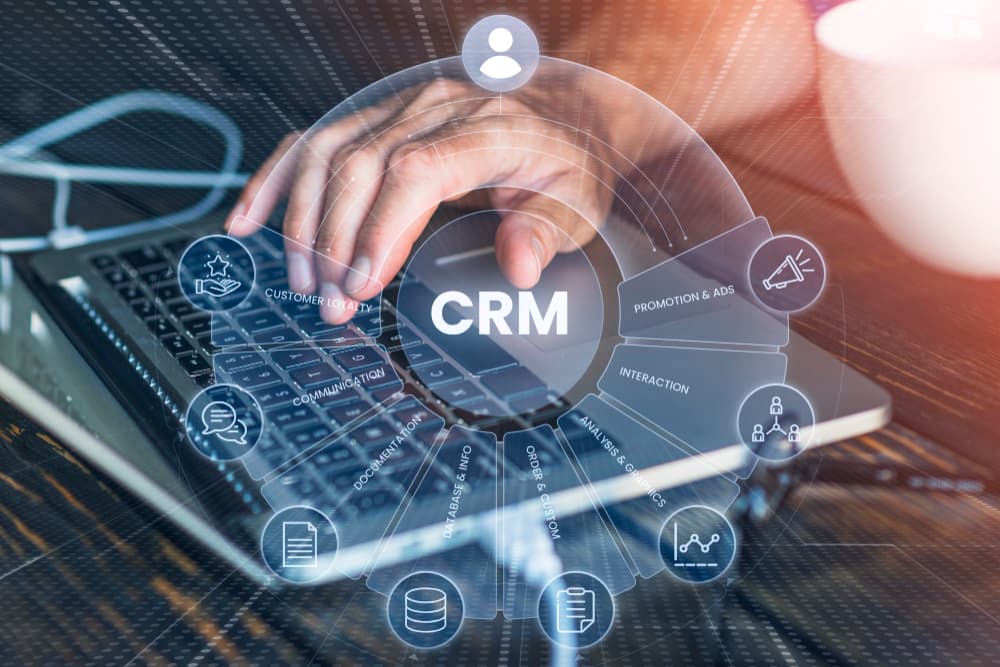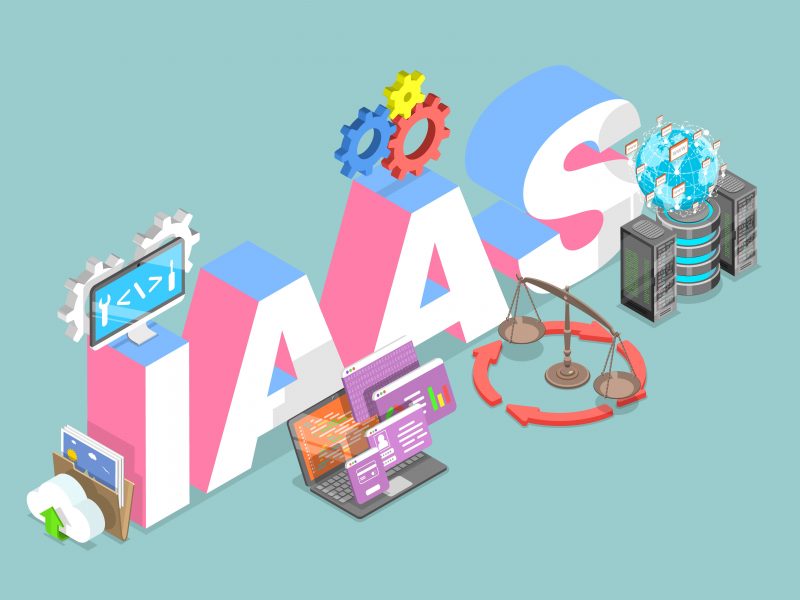In this fast-paced digital era, where customers have high expectations and fierce competition, a robust CRM system can be a game-changer for your business. But with so many available options, how do you choose the best CRM software for your unique needs?
Don’t worry – we’ve got you covered! In this blog post, we’ll explore what CRM software is all about, delve into its benefits, discuss factors to consider when selecting a solution, and finally compare some of the top options on the market today.
So buckle up as we take you on an exciting journey through the world of CRM software – where technology meets customer satisfaction! Let’s dive right in!
What is CRM Software?
CRM software has become a buzzword in the business world in this digital age. But what exactly is CRM? Well, CRM stands for Customer Relationship Management. It’s a technology-driven approach that helps businesses manage their interactions and relationships with existing and potential customers.
At its core, CRM software serves as a centralized hub where businesses can store and access valuable customer data. This includes contact information, purchase history, communication logs, and even preferences – all in one convenient location. This wealth of information lets you gain deep insights into your customer’s needs and behaviours.
But a sound CRM system does more than just store data; it also provides tools to analyze and leverage that information effectively. With robust reporting features and analytics dashboards, you can identify trends, track sales performance, and measure marketing campaigns’ success rate – ultimately making informed decisions to drive growth.
The Benefits of CRM Software
CRM software offers numerous benefits to businesses of all sizes. First and foremost, it allows companies to effectively manage their customer relationships by providing a centralized platform for storing and organizing customer data. This means that sales teams can access important information about leads and customers in real time, enabling them to provide personalized experiences and build stronger relationships.
Additionally, CRM software helps streamline business processes by automating tasks such as lead generation, email marketing campaigns, and follow-ups. This not only saves time but also ensures consistency across the board. Automated workflows allow employees to focus on more strategic activities rather than repetitive administrative tasks.
Another key benefit of CRM software is its ability to generate valuable insights through analytics and reporting features. Businesses can better understand their target audience’s preferences and behaviours by analysing customer data collected over time. This information can then be used to tailor marketing strategies, improve product offerings, and make informed business decisions.
Implementing a CRM solution fosters organisational collaboration by centralizing communication channels between departments like marketing, sales, and customer service. Access to shared data encourages cross-departmental cooperation, enhancing efficiency and overall performance.
How can a CRM help your company?
First and foremost, CRM software provides you with an organized and centralized database of all your customer information. No more digging through piles of notes or searching multiple systems to find the details you need. With a CRM, everything is in one place, easily accessible at your fingertips.
A CRM allows for better communication and collaboration within your team. You can track all customer interactions, including emails, calls, meetings, and social media engagements. This ensures that everyone on your team is on the same page regarding customer interactions.
In addition to improved communication, a CRM also helps streamline sales processes. You can create automated workflows that guide your sales team through each step of the sales cycle. This saves time and ensures consistency in how deals are managed.
A CRM enables you to analyze data and gain valuable insights into your business performance. You can generate reports that provide detailed information on key metrics such as sales revenue trends, customer acquisition costs, and conversion rates. These insights allow you to make informed decisions about marketing strategies and resource allocation.
Implementing CRM software benefits your company by enhancing organization efficiency, improving communication, streamlining sales processes, and providing valuable data analysis capabilities. It’s an essential tool for businesses looking to optimize their customer relationship management efforts.
Factors to Consider in Selecting CRM Software
When it comes to selecting the right CRM software for your business, there are several factors that you need to consider. These factors can significantly impact the effectiveness and efficiency of your CRM implementation.
First and foremost, accessibility is key. You want a CRM solution that is easily accessible anywhere, anytime. This means choosing a cloud-based CRM platform that allows you and your team to access critical customer data on the go, whether in the office or the field.
Security should be a top priority when selecting CRM software. Your customers’ data is valuable and needs to be protected at all costs. Look for a CRM solution that offers robust security measures such as encryption, secure login credentials, and regular data backups.
Another factor to consider is scalability. As your business grows, so will your customer base and data volume. Ensure your chosen CRM software can handle increased usage without compromising performance or functionality.
Integration capabilities should also be taken into account when selecting a CRM solution. Your chosen software must integrate seamlessly with other tools and systems used by your organization, such as email marketing platforms or project management tools.
By carefully considering these factors before deciding which CRM software to invest in, you can ensure that you choose a solution that meets the unique needs of your business while providing maximum value and return on investment.
Accessibility
One important factor to consider when selecting CRM software for your company is accessibility. In today’s digital age, accessing your CRM system from anywhere at any time is crucial. With a cloud-based CRM solution, you can easily access your customer data and sales pipeline from any device with an internet connection.
Having mobile accessibility allows your sales team to stay productive even when they are on the go. They can quickly update customer information or check their upcoming tasks on smartphones or tablets. This flexibility enables them to provide excellent customer service and close deals faster, no matter where they are.
Furthermore, accessibility extends beyond just mobility. It also refers to user-friendly interfaces that make it easy for users of all skill levels to navigate and utilize the CRM system effectively. A well-designed CRM software should have intuitive features and a clean layout, allowing users to find what they need quickly.
Consider how accessible the support options are for the CRM software you choose. Are resources like tutorials, FAQs, or a dedicated support team readily available? Having reliable support ensures you can get help whenever you encounter difficulties or have questions about using the software.
Accessibility is vital in choosing the best CRM software for your business needs. Accessing important customer data anytime and anywhere provides flexibility and empowers your sales team to be more efficient and effective in their roles.
Security
Security should be a top priority when selecting CRM software for your business. After all, you’ll entrust the software with sensitive customer data and confidential company information. So, how can you ensure that your chosen CRM solution offers robust security measures?
First and foremost, look for CRM software that provides robust encryption protocols to protect your data from unauthorized access. This includes in-transit encryption (when data is transmitted between devices) and at-rest encryption (when data is stored on servers). Additionally, consider if the software offers features like two-factor authentication or IP restriction to add an extra layer of security.
Another vital aspect is the vendor’s commitment to maintaining high-level security standards. Check if they regularly update their system with patches and fixes to address potential vulnerabilities. It’s also worth investigating if they have undergone third-party audits or certifications related to data protection.
Furthermore, evaluate the level of control you have over user access rights within the CRM software. Can you define specific permissions for different roles? This way, you can limit access only to those who need it while minimizing the risk of internal breaches.
Choosing secure CRM software is crucial in safeguarding your business’s valuable assets. By carefully assessing each option’s security features and practices, you can select a comprehensive solution that keeps your customer data safe and protects against potential threats or breaches.
Conclusion
Choosing the right CRM software for your company is essential in today’s competitive business landscape, enabling streamlined sales and marketing processes, improved customer satisfaction, and increased revenue. When selecting CRM software, it’s crucial to consider factors like accessibility and security to ensure efficient data access and protect sensitive customer information. The best CRM choice depends on your business needs and goals, considering scalability, customization options, pricing plans, and integrations with other essential tools.


